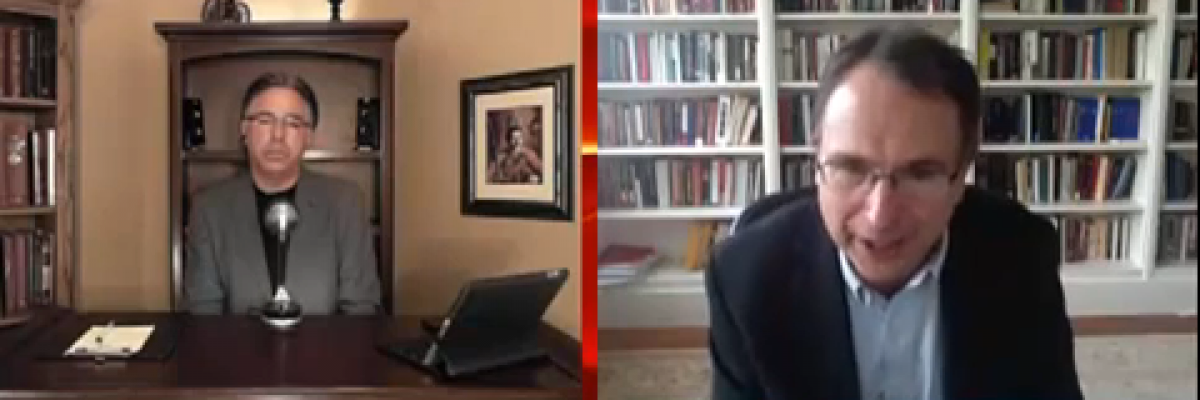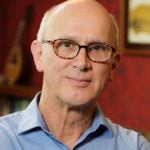
After Catholic Answers Live aired, on August 12, its second two-hour program devoted to “radical Traditionalism,” a priest from the Priestly Fraternity of St. Peter, a religious society that celebrates Mass exclusively in the Extraordinary Form, wrote to us:
“Thank you for your fidelity in addressing this issue despite false accusations from some of ‘attacking’ traditional Catholicism. I thought your distinctions were clear between ‘radical Traditionalists’ and those in full communion with the Church.”
This priest had no problem understanding the program, which, like a May 31 program on the same subject, featured Tim Staples and Patrick Coffin. He understood the distinction drawn between fringe groups of “radical Traditionalists” and the much larger body of regular Traditionalists.
The same can’t be said for Michael Matt and Christopher Ferrara. Matt is the editor of, and Ferrara is a writer for, The Remnant, a fortnightly newspaper that some consider to be the chief Traditionalist publication in the U.S. The day after the August 12 program aired, Matt and Ferrara uploaded to the Remnant-TV website a video castigating Catholic Answers.
“The Church is in the state of absolute chaos,” said Ferrara, leaning into the camera, “and here they are wasting radio time.” Wasting radio time? Ferrara didn’t mention that out of 1,600 airtime hours broadcast by Catholic Answers Live since the show’s debut, only these four hours have been devoted to the topic of radical Traditionalism: that’s one quarter of one percent. Is that too much for an issue about which we get many questions?
We have devoted far more program hours to the New Age movement, but we get far fewer questions about New Age beliefs and practices than we do about radical Traditionalism. Where has Ferrara voiced concern that we are “wasting radio time” on the New Age movement–or on the many other topics that we’ve devoted more than four airtime hours to?
More problematic than Ferrara’s arithmetic is his language: “The Church is in the state of absolute chaos.” The word “chaos” is hyperbolic; the adjective “absolute” raise the hyperbole to its highest possible degree. The phrase “absolute chaos” suggests that the Church everywhere outside Ferrara’s immediate sphere is as bad off as it possibly can be and is ready to expire.
That may be his view, and it may be Michael Matt’s, but it is not the view held by the large majority of Catholics, whether Traditionalist or non-Traditionalist. Most Catholics acknowledge serious abuses within the Church but also acknowledge extensive good. Judging from their choice of words, Matt and Ferrara seem to see almost nothing good. How could they, if the Church is in “absolute chaos”? (If they do see much good in the Church, then why do they so cavalierly use loaded terms like “absolute chaos”?)
In the video Matt complained that the term “radical Traditionalism” shouldn’t be used at all because it was coined by the Southern Poverty Law Center, a leftwing organization that, despite its name, does nothing to alleviate poverty but delights in discovering “hate groups.” (Matt’s implication seemed to be that Catholic Answers is sympathetic to, or even in cahoots with, SPLC–else why mention SPLC at all?)
In 2006 SPLC produced a report on what it called the “Radical Traditionalist Catholic, Anti-Semitic Movement.” A dozen organizations and many individuals were mentioned. Some truly qualified as anti-Semitic; most didn’t. One of the organizations listed was The Remnant. Thus Matt’s animus toward the term “radical Traditionalism.” But the term didn’t originate with SPLC. It was in use years before that group used it. A term doesn’t lose its value just because a scurrilous organization uses it in the title of a report.
The fact is that there are radical Traditionalists, people who can be distinguished from run-of-the-mill Traditionalists by their beliefs, actions, and attitudes. The two Catholic Answers Live programs discussed such folks—among them, for example, sedevacantists, those who reject Vatican II, and those who say the vernacular Mass isn’t really a Mass at all.
In their video Matt and Ferrara complained about an unnamed blogger who had been cited by Philip Lawler at his own blog. They said the unnamed blogger unfairly characterized Traditionalism. “We don’t reject Vatican II!” said Matt. But then the blogger didn’t claim that Matt and his associates did.
The blogger was Taylor Marshall, and his blog post appeared on July 30. He listed nine attributes that he thought distinguished radical Traditionalists from regular Traditionalists. I don’t agree with everything on his list. He said, for example, that a sign of radical Traditionalism is “the denial of the charismatic gifts and the charismatic movement.” I think this is incorrect. One can find Catholics all across the spectrum who deny not so much the existence of charismatic gifts but the utility or prudence of the charismatic movement.
But Marshall did identify things that commonly are found among radical Traditionalists: “the denial of the Jewish holocaust,” “the outright denial of Vatican II as a valid council,” “disdain for Pope John Paul II and Pope Francis,” and “the belief that Latin Mass Catholics are ‘A Team’ and Novus Ordo Catholics are ‘B Team.’”
Those attributes don’t amount to a definition of radical Traditionalism, but they are useful indicators. The irony in all this was that Marshall was writing about Pope Francis putting a restriction on the celebration of the Latin Mass by the Franciscans of the Immaculate—a Traditionalist group of which Marshall is an associate member! In other words, Marshall is a Traditionalist himself.
Maybe this is why Matt and Ferrara didn’t name Marshall, not wanting their viewers to look up his blog and see that they were claiming, loopily, that a Traditionalist was writing against his own position.
Michael Matt’s imprecision in saying that (an unnamed) Taylor Marshall claimed that Traditionalists such as Matt “reject Vatican II” is indicative of the looseness with which he and Ferrara have been writing and speaking about the two Catholic Answers Live programs. (The Remnant ran no fewer than three front-page articles against the programs.) Matt and Ferrara shoehorn their opponents into taking positions that they don’t in fact take and into saying things they don’t in fact say.
In their video Matt insisted that “the whole Traditionalist position is being attacked by neo-Catholics,” among whom he includes the staff of Catholic Answers. To him and to Ferrara, “neo-Catholics” either are oblivious to the multitudinous ills in the Church or are knowingly complicit in them. They go along to get along, don’t want to upset bishops by complaining about the hierarchy in public, and are cowed into silence out of fear of losing episcopal patronage or protection. They lack the gumption displayed by those associated with The Remnant.
In fact, people labeled “neo-Catholics” are simply orthodox Catholics who don’t share The Remnant’s unrelenting (and often skewed and uncharitable) grousing about the Church and about Catholics who don’t toe that publication’s party line and who don’t follow its stylebook. In the minds of The Remnant folks, you can’t be a traditional Catholic unless you use their rhetoric, focus on their issues, and share their priorities.
Let me end with a small amusement.
In their video Matt and Ferrara complained about the neologism “radical Traditionalism,” saying that it was misleading and unfair, that it painted with too broad a brush, that it lacked precision. Yet throughout their video they labeled their opponents with the even vaguer (and newer) “neo-Catholics,” a term that Ferrara admits he first popularized in a 2002 book.



